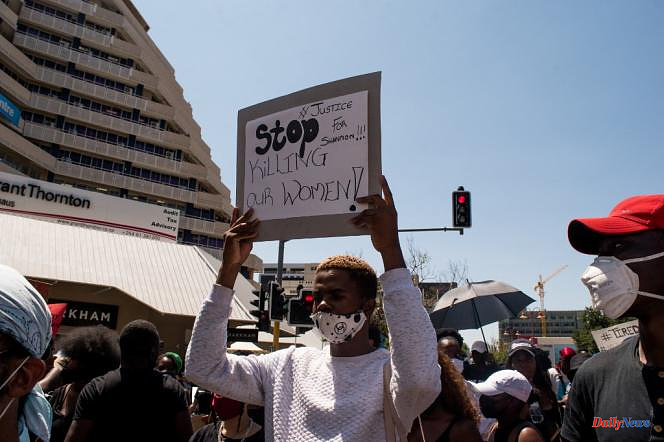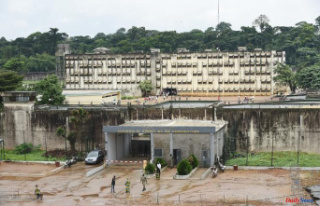Pregnant, this 29-year-old Namibian traveled to neighboring South Africa where termination of pregnancy is legal. If she had not had the means to travel, she would have risked a potentially dangerous clandestine operation. For two years, the government of this desert country in southern Africa has launched debates with civil society on the advisability of getting rid of a law inherited from the apartheid era. A report must now be submitted to Parliament for discussion, according to the Minister Delegate for Health, Esther Muijangue, without a precise timetable.
When Alejandra Angula (a pseudonym) learned of her pregnancy, she was 25 years old. Bad luck, she was taking the pill, an effective but not infallible contraceptive method. She remembers her "dejection". Very quickly, she makes an appointment at a clinic in Cape Town and jumps on a plane. “I was more afraid of having a baby and being forced to become a parent than of the procedure, recognizes this computer scientist. I was so desperate, I would have tried any other way. »
A 36-year-old compatriot, who does not want to be identified, also had an abortion in South Africa where her partner worked. "I am grateful to have been in a position to benefit from the procedure, but also to have been able to do so legally and safely," she told AFP.
"Sometimes Death"
Many other women opt for illegal abortions, in dubious sanitary conditions, or carry the child to term before abandoning it once born. In this conservative society, marked by the Christian religion, contraception is frowned upon, abortion even worse.
“We welcome a lot of women from Namibia,” notes Blum Khan, South Africa director of the NGO Marie Stopes International, which runs clinics providing contraception and abortions. Some arrive suffering from "bleeding or other ailments" after botched operations. "Women are risking their lives," he recalls.
Namibia only authorizes the termination of pregnancy in specific cases, in particular resulting from rape, incest or to save the life of the mother. In South Africa, it was legalized in 1996, shortly after Nelson Mandela's election.
Maria Kamati, a nurse at The Voices for Choices and Rights center in the capital, Windhoek, argues that the lack of information for Namibian women about contraception leads to low use, leading to many unwanted pregnancies. "Some attempt clandestine abortions, causing health problems, sometimes death," she says.
This situation could soon change: the debate has captivated the 2.6 million inhabitants of this immense country, in particular through citizen meetings organized in the cities. “We want reproductive justice. I have to be able to make decisions myself that concern my body,” Yvonne Lipenda told AFP on the sidelines of one of these debates held in Katutura (“the place where no one wants to live” in language herero), a township created under apartheid by the South African colonial administration.
"An Informed Decision"
It was a petition to liberalize the termination of pregnancy which had collected more than 63,000 signatures, which prompted Minister Esther Muinjangue, 60, to launch these public consultations. “Legal or not, abortion is a reality (…) It is time to examine the pros and cons so that the country can make an informed decision”, advanced in Parliament this trained social worker in June 2021 , calling for "more open-mindedness" on this topic.
"I hope that elected officials will take into account medical advice and the fact that dangerous clandestine abortions are taking place, and that this will lead to making termination of pregnancy accessible to all," she told AFP.
This discussion in the country is part of a context of lively societal debates in recent months, in particular for the recognition of same-sex marriage or the identity of children born thanks to a surrogate mother, fueled by several legal proceedings.












